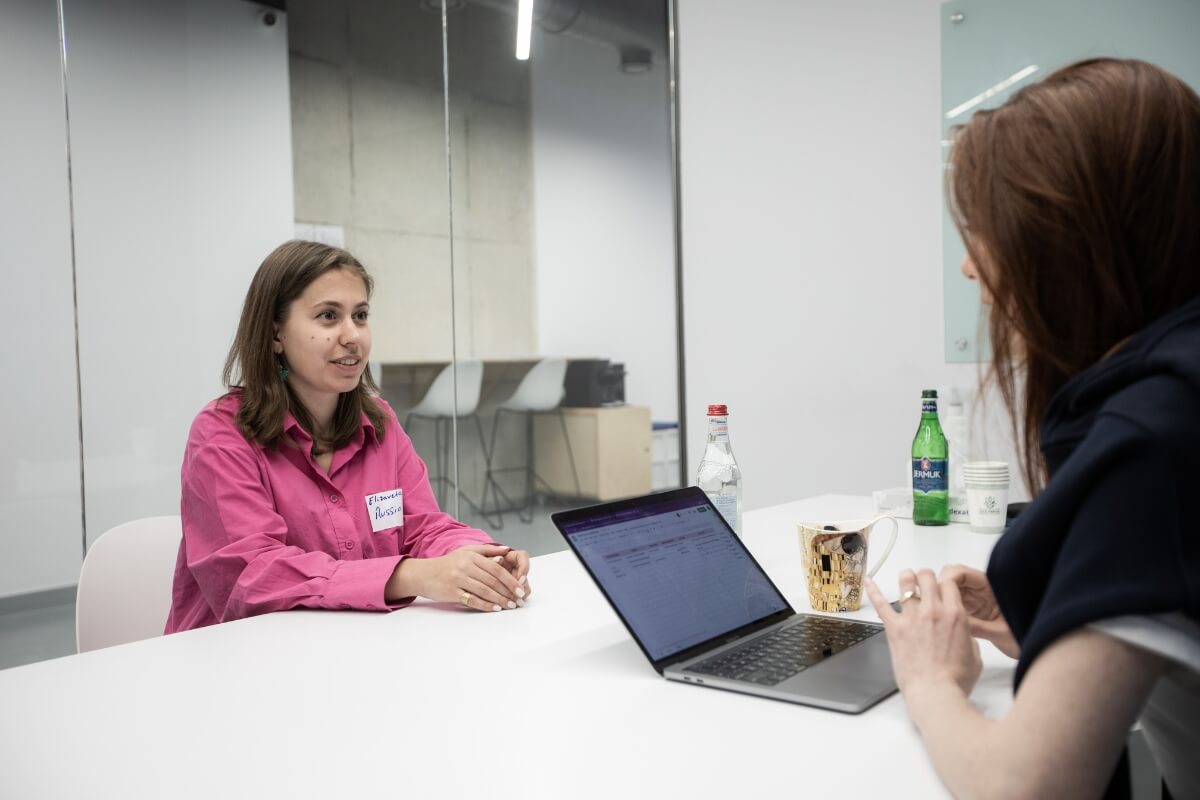My Way Home
09.08.2023
6 min read
Thoughts
There are no job opportunities in Armenia
-webp(85)-o(jpg).webp?token=59c0ebc67359923352a1d41a03a9da5b)
There are no job opportunities in Armenia. This is, perhaps, the first and most important fear that arises among our compatriots thinking of moving to Armenia. Admittedly, this is the factor that leaves the idea of repatriation as an idea.
The other issues are place of residence, legalization in Armenia, bureaucratic processes, study, and socialization - everything is solvable if there is a job. But there is no work! Mostly those who left Armenia in the 1990s and many Armenians from the Middle East are absolutely sure of this. This myth is also actively fuelled by many residents of Armenia, as well as by those Armenians whose migration from Armenia and adaptation to new countries was the most traumatic.
Is this problem objective or subjective? Let us try to understand
The official unemployment rate in the country is 13.7% (2022), while many countries have comparable or higher unemployment rates, including Georgia (18%), Macedonia (14%), Spain (13.2%) and Lebanon (12.5%). The average salary in Armenia in 2022 ($672) was even higher than in a number of countries in the region, including Georgia ($661), Russia ($652), Albania (546) and Turkey (514).

At the same time, Armenia has typical features of countries with high levels of migration and money inflows from those who migrated to the country - hidden unemployment, lower wages, higher cost of living, orientation towards the "prestige" of choosing a profession or education rather than its prospects. There is also low motivation in job search and forced employment if there are no options to leave or find something "prestigious". Such work is always seen as temporary. This is just a statement of fact. Sad, because as a result of this, the usual chains of career growth are broken and vacancies appear for which they cannot find employees for years. A living example - drivers of rubbish trucks, with high salaries by average standards. There was a moment when the vehicles were idle in the park because drivers could not be found, and no one would come.
In today's Armenia, there is both unemployment and demand for specialists of various profiles, which many employers are forced to try to cover at the expense of migrants from other countries. And no, it's not only work as a driver of special equipment, just a very vivid example.
Yes and yes, Armenians show miracles of adaptability, and ability to work and focus on achieving results abroad, but these same qualities miraculously "evaporate" when it comes to Armenia.
But let's finish with statistics. Each repatriate is a private case, and nobody wants to accidentally get into a situation when on average everything is fine in the country, but you personally have nothing to pay for your flat.
And Armenian repatriates, if their repatriation is conscious and not forced, expect high salaries, a high social level, and a standard of living not lower than it was in the countries they came from.
It should be clearly understood that moving to Armenia (as well as to any other country) implies a number of challenges that need to be accepted and overcome. Whether it is the need to change one's occupation or to retrain and confirm qualifications. Or simply accepting, for example, the fact that you will have lower starting financial conditions and a language barrier at the beginning.
There are jobs in Armenia, it's just that they won't always be your dream job. Especially in the beginning. Maybe you should think about starting your own business, there are many niches in which nobody is doing anything in small Armenia, as proven by the last wave of re-locations. Never before have so many small companies opened in Armenia, offering a wide variety of goods and services. From picnic-bee-knitting lessons, workshops of all kinds, vintage clothing and vinyl shops, spas of all kinds, schools, farms, private libraries to big businesses, and not only in IT. It turned out that in Armenia it is possible to revive old clothing production shops, build farms from scratch, offer process automation and much, much, much more!
Yes, you need to invest a fair share of time, patience and diligence, proactivity, positivity and adaptability yourself to achieve success in your homeland. On the other hand, if you have already succeeded in another country, why not in Armenia, where they will help you and sincerely root for your success?

The earlier you start the process, even before you move, the better your result will be. There are organizations such as Repat Armenia Foundation, Move2Armenia, repatriate and relocant communities that will be happy to help you on your journey.
What are the three main tips to achieve success in Armenia faster?
1. Break down the language barrier
First of all, we are talking about the Armenian language, although a confident command of English and a number of other foreign languages always increases your attractiveness to potential employers. Mastering your native language often involves not only speaking but also writing. You can learn the language either online or by attending courses in Armenia.
There is a solution - try to find a job in a foreign company (there are many of them) or work remotely. If you are not a polyglot, it will take you at least six months to learn the language. While you are learning the language - the job will be a great help. Or act like the author of this article - go to work in an Armenian company without knowing Armenian, learning in the process. It will be hard, difficult, but the first contract you have to sign in Armenian will open up your polyglot talent, we guarantee it! And if we are not joking, in the last half a year Armenian companies have become much more loyal to repatriates with poor Armenian.
2. Assess the demand for your profession
Diaspora Armenians very rarely choose an education or profession abroad, given the job prospects in Armenia if they move. What to do if you are a lawyer or accountant who worked only in the legal field of Russia? Either retrain in Armenian law and confirm your qualifications here (this is if you really love your profession), or find a related profession, or continue to work remotely for Russian-speaking companies. Unfortunately, there are almost no other options. It is extremely rare for international companies to open vacancies for specialists in another legal field.
Therefore, I advise you to contact "Repat Armenia" Foundation, whose managers will provide you with employment counseling, assess your skills and knowledge, put you in touch with potential employers, or recommend retraining courses based on your preferences and experience. They will also provide you with information about the platforms through which you can find a remote job. They'll also just give you human support, sometimes that's what's most helpful.
3. Integrate
Make connections and socialize. This is a very important process, the importance of which is often underestimated by our compatriots. Go to all events and become a volunteer. Getting acquainted with integrated repatriates from different countries will help you to pass your way in repatriation without their mistakes. Look for potential employers by participating in internship and practicum programs at Birthright Armenia, Armenian Volunteer Corps, and others.
Don't neglect to participate in the integration events for repatriates of the "Repat Armenia" Foundation and the Repatriation and Integration Center (yes, yes, there is such a center), all this will allow you to create a new circle of communication, make connections, improve your language, find a job, projects and, of course, new friends!
What's the bottom line? It is pretty clear. There are job opportunities in Armenia. Will it be easy to find them? Not always. But where and when was it easy? The road will be mastered by the going, and many people have already trodden the path before you...
Mara Abrahamyan
-
Repat Story
-webp(85)-o(jpg).webp?token=1e92b54f0944749ca5bfba8610443e65) 11.07.2025Finding Her Best Self: A Journey from Kyiv, Through Artsakh, to Ijevan
11.07.2025Finding Her Best Self: A Journey from Kyiv, Through Artsakh, to Ijevan -
News
-webp(85)-o(png).webp?token=f37ae16e3d39e65dcd2a12f487f7bf27) 24.03.20253 min readFind a job in Armenia more easily with staff.am and Repat Armenia
24.03.20253 min readFind a job in Armenia more easily with staff.am and Repat Armenia -
Repat Story
-webp(85)-o(jpg).webp?token=1288c94320c03ca30a5ed612b072b0db) 22.01.20257 min readConductor Nvart Andreassian: Five Decades of Experience for Armenia
22.01.20257 min readConductor Nvart Andreassian: Five Decades of Experience for Armenia

-webp(85)-o(png).webp?token=b52e9ea1baa1cd28354d961b83f55db1)